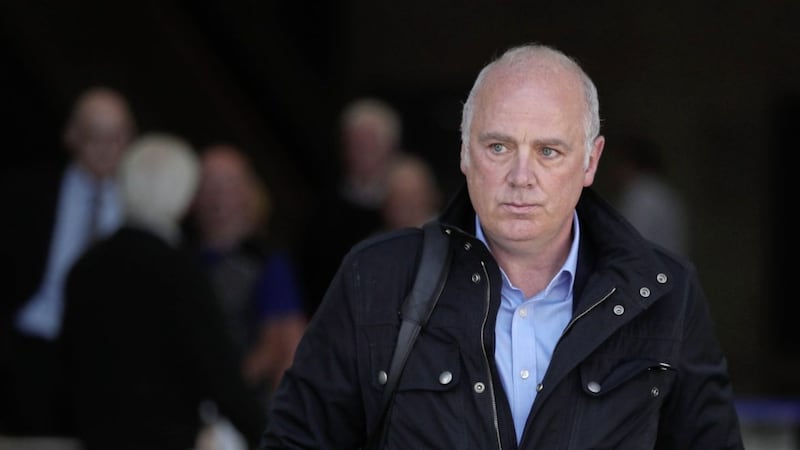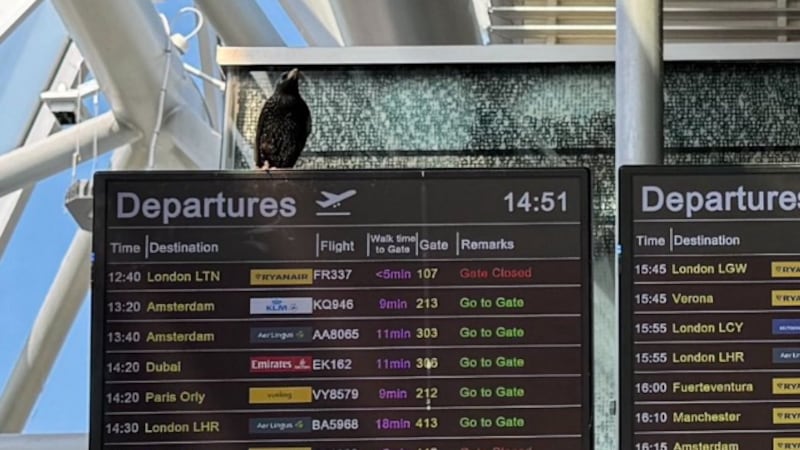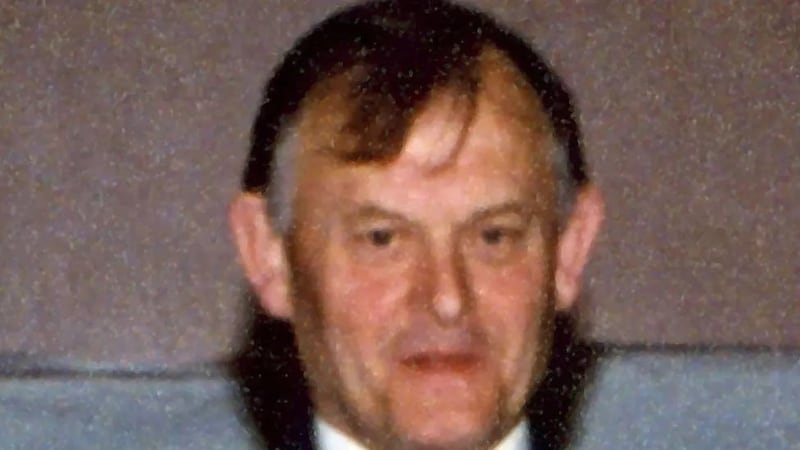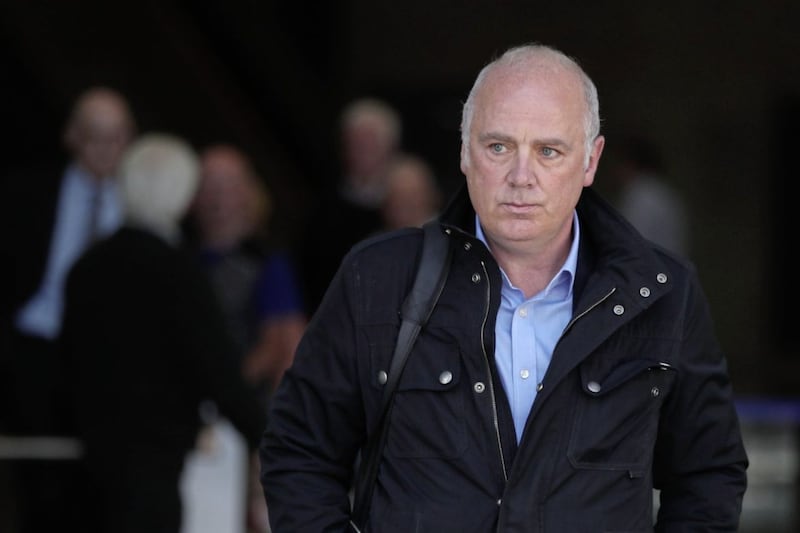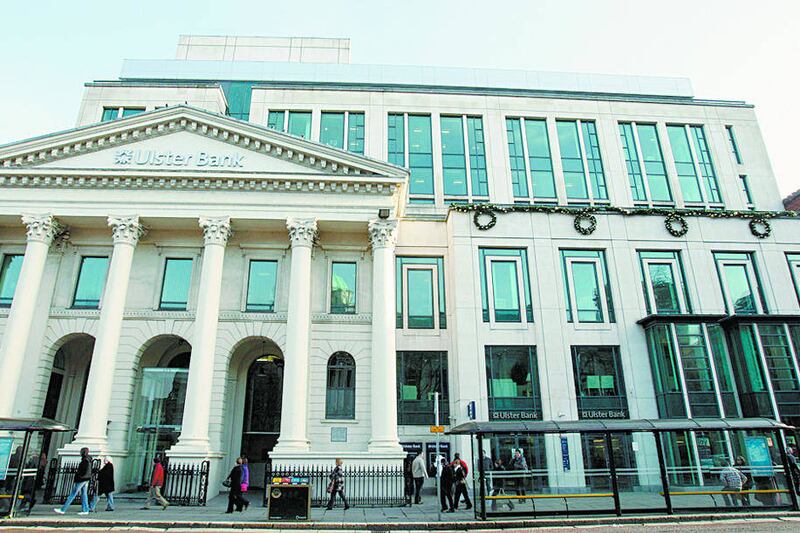A FORMER banker, who led a bust institution that contributed to the collapse of the Irish economy, has been convicted of fraud.
Ex-Anglo Irish Bank chief executive David Drumm (51), was found guilty of conspiracy to defraud and false accounting after arranging dishonest and fraudulent multibillion-euro transfers to boost the failed Irish lender's books in the months before it imploded in 2008.
It was taken under state control in January 2009 following a run on its deposits and plummeting share prices.
Bailing out Anglo was to cost taxpayers billions of euro.
The defendant had denied conspiring to "dishonestly" create the false and misleading impression that deposits in 2008 were €7.2 billion larger than they were as well as knowingly presenting the false figures to the market in December 2008.
A jury of nine men and three women returned unanimous verdicts on both counts at Dublin Circuit Criminal Court yesterday, after deliberating for 10 hours and 32 minutes following a near five-month trial.
Dressed in a dark suit and blue open collar shirt, Drumm, of Shenick Avenue in Skerries, Co Dublin, sat quietly and did not react.
Three of his former colleagues – John Bowe from Anglo's treasury department, Willie McAteer, the bank's former director of finance and the former chief executive officer of Irish Life and Permanent, Denis Casey, were all convicted of the same conspiracy and jailed in 2016.
Their trial was reportedly one of the longest criminal cases in the history of the state and led to lengthy jury deliberations.
Drumm, whose wife and children were in Boston at a graduation ceremony as the verdicts were announced, made no comment as he left the court.
Judge Karen O'Connor released him on bail with strict conditions until he is sentenced at 10.30am on June 20.
Detective Superintendent Gerard Walsh, of the Garda National Economic Crime Bureau, told reporters the investigation was "one of the most complicated" ever carried out by the team since it commenced nine years ago and involved sifting through almost one million files.
He said: "Today's verdict emphasises the importance of corporate responsibility at all levels and the very real obligation to conduct business with honesty and integrity."
Anglo was nationalised by the then government, costing Irish citizens €29bn.
The Northern Rock building society in the UK was nationalised in 2008 as the international money markets stopped lending as part of a crisis involving sub-prime mortgages in the US.
Investment banks Bear Stearns and Lehman Brothers collapsed.
March 17 2008 became known as the St Patrick's Day Massacre as the effects of the global financial crisis began to take hold in Ireland and huge amounts were wiped off the value of stocks.
The Republic's government introduced a deposit guarantee scheme that year, then underwrote the entire banking system.
Described as the man who "called the shots" at Anglo, Drumm was chief executive from January 2005 until December 2008 when he resigned as the bank was collapsing.
He left Ireland for Boston in 2009 but was taken later into custody before agreeing to his extradition to Ireland in March 2016.
The case against him centred on a series of deposits that circulated between Anglo and fellow financial institution Irish Life and Permanent (IL&P) in 2008.
Some of the transactions, worth billions, passed between Anglo and IL&P and back again within hours.
Meetings were held in Drumm's office about funding that had gone into "meltdown" as liquidity ratios (between assets and liabilities) had fallen.
On September 29 2008 Drumm delivered a letter to the Central Bank of Ireland about Anglo's liquidity problems and its inability to make payments the following day.
He sought €1.4bn in emergency funding.
His lawyers told the court he did not deny the money was moved, but disputed it was fraudulent.
In a series of admissions on Drumm's behalf, a series of transfers between Anglo and IL&P and ILA as the global financial crisis hit hard in 2008 were revealed.
In March Anglo placed €1bn with IL&P and ILA deposited €750 million in return.
In June that year IL&P moved bonds worth more than €3bn to Anglo. In return Anglo deposited €3bn.
In September Anglo moved €7.2bn to IL&P. In return IL&P moved the same amount back to Anglo on behalf of ILA.
All the monies were repaid within weeks of each transaction.
The aims were to increase Anglo's non-bank deposits and to reduce IL&P's reliance on European Central Bank funding.
More transactions had been planned for December but they were never completed.
Paul O'Higgins, senior counsel for the state, said Drumm arranged the €7.2bn September transfer, adding: "This was a completely artificial process leading to a dressing up, a more than dressing up, a falsification of Anglo Irish Bank's balance sheet so that its non-bank deposits were €7.2bn bigger than they really were."
Evidence in the trial included taped phone calls from Anglo's treasury department, including calls about the multibillion-euro transfers.
Mr O'Higgins said the money was moved at "lightning speed" and the prime objective was to "dishonestly create the false impression" at Anglo's year end in 2008 that its non-bank deposits were in the 50 billions.
